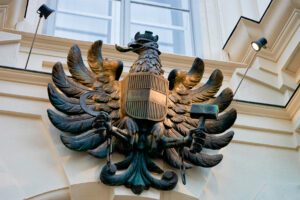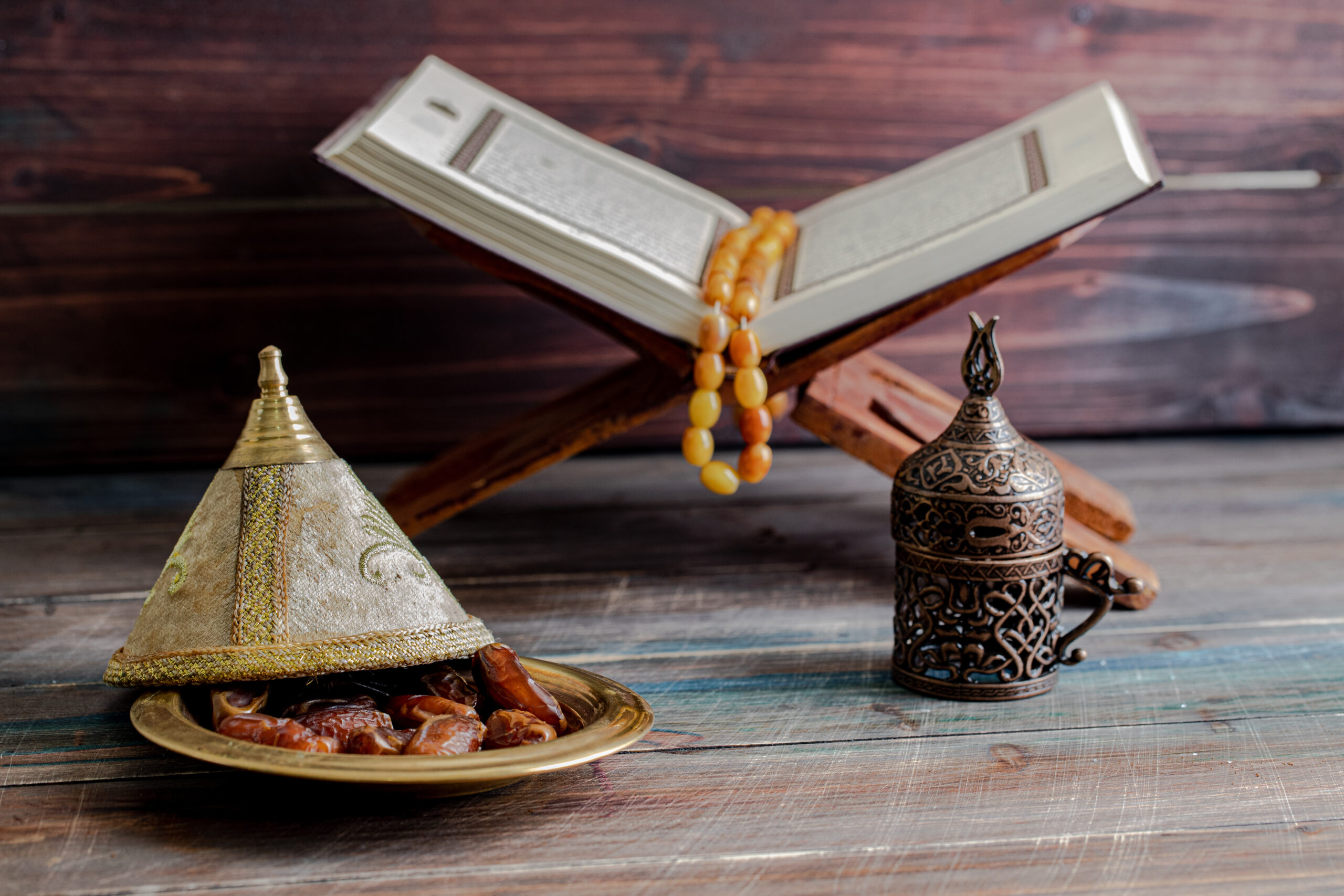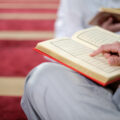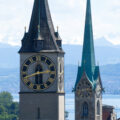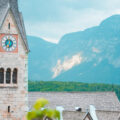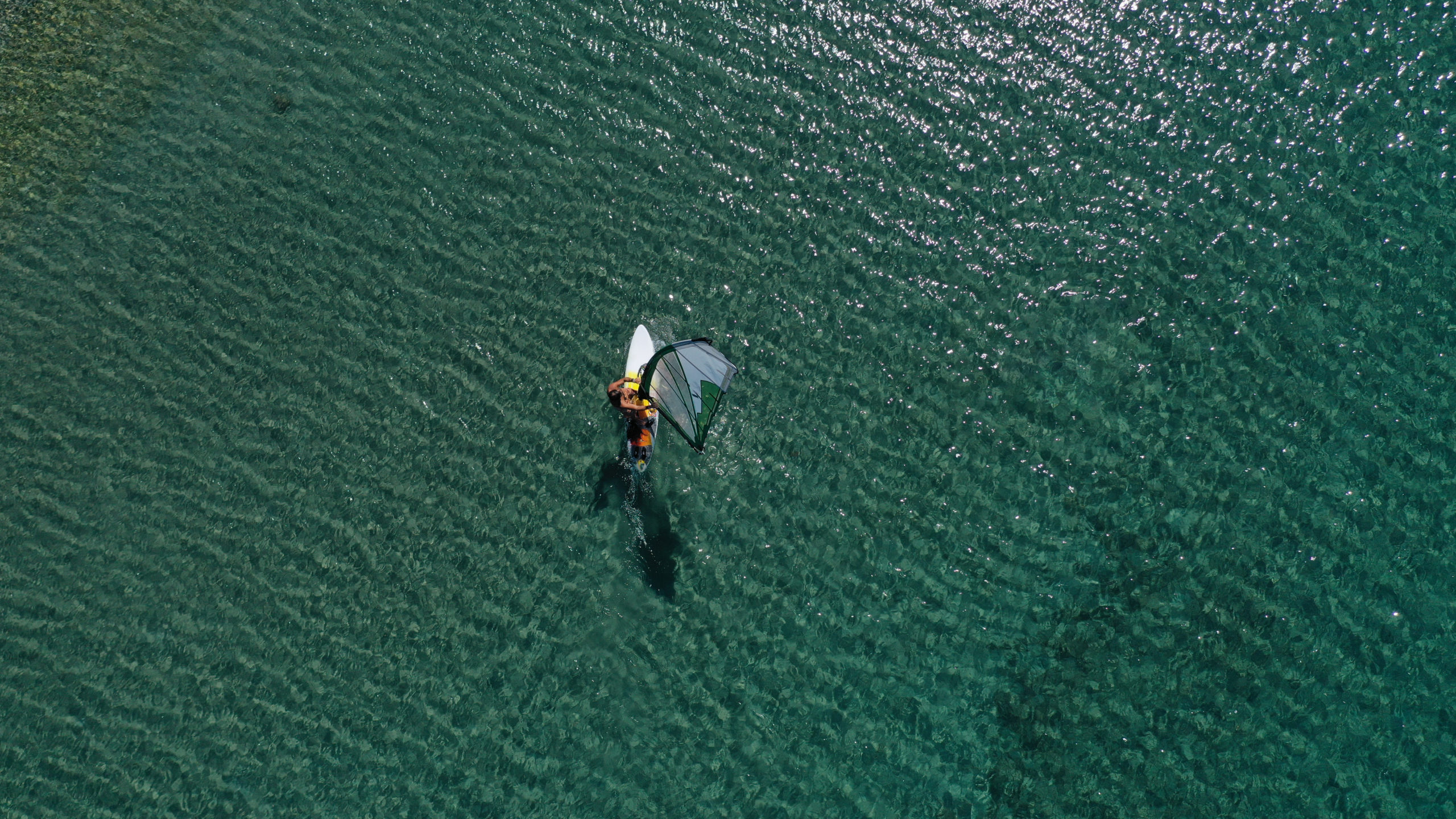State and religion in Austria – a complicated relationship
State and religion in Austria – a complicated relationship
A prayer event at the parliament and a draft bill against terrorism have raised discussions in Austria recently. What is the place of religion in a democratic state, and can these different spheres be mixed?
State and religion in Austria – a complicated relationship
In the last months, a couple of incidents have raised questions around the state of secularity in Austria and the neutrality of the government towards different religions. For instance, the decision of the constitutional court to annul a previous ban on headscarves for school children,[1] a prayer event that took place in parliament,[2] a draft bill in connection with the anti-terror package, and the so-called Islam law have all been publicly debated.[3] These events have led to an intensive discussion in Austrian politics and media on the relationship between religion and the state.
A court decision on discriminatory law-making
A recent judgement of the constitutional court led to the questioning of the impartiality of the Austrian government. In autumn 2019, the then right-leaning government formed by the People’s Party (ÖVP) and the Freedom Party (FPÖ) enacted a ban on headscarves for school children in elementary schools. The regulation was controversial from the outset and was criticised as populist.[4] It is clearly directed at the Muslim hijabs and does not concern the Jewish kippah or the Sikh patka.[5] A year after its implementation, it has now been repealed as unconstitutional and an infringement of the neutrality of the state towards all religions and world views.[6]
But does this one-sided lawmaking mean the government is biased? Christoph Grabenwarter, president of the constitutional court, stated the “ban of the Islamic headscarf stigmatises specifically one particular group of people.”[7]On the contrary, several members of the acting government, like the Minister of Women and Integration Susanne Raab from the People’s Party (ÖVP), have declared their sorrow and regret regarding the court decision.[8]
Another example of the position of the Austrian government is the current debate on the draft bill for a new anti-terror package. It includes serious changes and additions to the Islam law, which clarifies the relations between the Muslim community and the state. Several religious communities criticised the connection of this kind of law with measures against terrorism and penal provisions.[9] This would put one specific religious community into an inferior position and reveals an inappropriate relationship between state and religions.[10]
A prayer as a violation of democratic principles?`
However, the incident which raised the most questions about the state of secularity and neutrality was a prayer event at the parliament. It was hosted by the presiding officer of the parliament, Wolfgang Sobotka (ÖVP), on the Catholic holiday of the Immaculate Conception. High-ranking politicians of the conservative ÖVP and representatives of several Christian Churches and the Jewish community attended. Among them was also the founder of the highly controversial Loretto community, Georg Mayr-Melnhof, who held a speech.[11] The event was conceived by the organisers as trans-fractional and trans-confessional and as a “sign of hope in the crisis.”[12]
The prayer attracted a lot of negative attention even before it took place. The critique referred largely to the exclusion of religious communities like Muslims, and the connection of the most important place of Austrian democracy and its president with a religious ritual. The location and official character were inappropriate, as many critics from opposition parties stated. Criticism also came from Catholic organisations and theologians.[13] Constitutional lawyer Heinz Mayer interpreted the event as not compatible with secular democracy. For him, it is pointing at a “direction of political Catholicism.”[14]
A broader look – secularism in Austria
The event itself can be seen as a mark of the continuous ties between Christian Churches and politicians, parties like the conservative People’s Party, and subsequently the government of Austria itself. This instance shows the double standard which is used when it comes to the separation of politics and religion. On the one hand, there are religious events like this and on the other hand, there is the injunction on Muslims to respect the separation of state and religion.[15] Journalist Beate Hausbichler construed it as a lack of self-reflection by Christian politicians on the awareness of the influence from their faith and traditions on politics.[16]
In the heated discussion, Austria is compared to other countries like Poland and France. Poland is used as an example of the obvious power of Catholic principles on law-making, in particular on abortion rights. Parallels can be found in Austria as conservative Ministers recently cast doubt on the current abortion regulations.[17] [18] In another comparison, France is used as an example for a strictly followed laicism in distinction from Austria’s more loose separation of religion and state. Due to the “indifference” of the French state towards religion, it is not easy to intervene in internal religious affairs. This circumstance and the flexibility of an open laicism like in Austria are major advantages, as argued by journalist Joëlle Stolz.[19]
But this flexibility is one of the main points of criticism because it could entail the risk of privilege and discrimination, as depicted in the incidents above. Many voices in the media and politics call for a strict separation of state and religion in Austria, especially concerning the Catholic Church.[20] [21] From their perspective, the status quo is full of inconsistencies and undermining democratic principles.[22] [23] But there are also warning voices against strict laicism like Stolz’s.
There are several different positions in this debate on secularism in Austria. It touches on the important issue of human rights, which is perhaps why the discussion is so heated. As religion remains a relevant part of life for a large proportion of the population and politicians, it will probably be argued about for a very long time to come.
Want to know more about similar topics on religion and society? Go to the EARS Dashboard and get weekly updates on your selected subjects.
[1] VfGH hebt Kopftuchverbot an Volksschulen auf
[2] Reaktionen: Kritik an Gebetsfeier im Parlament
[3] Politik: Neues Islamgesetz: Mehr Kontrolle und harte Strafen
[4] Die Debatte um das Kopftuch an Schulen: Zwischen Zwang und…
[5] VfGH kippt Kopftuchverbot in Volksschulen – Inland
[6] VfGH hebt Kopftuchverbot an Volksschulen auf
[7] VfGH hebt Kopftuchverbot an Volksschulen auf
[8] VfGH kippt Kopftuchverbot in Volksschulen – Inland
[9] Religionsvertreter kritisieren “Anti-Terror-Paket” | SN.at
[10] “Anti-Terror-Paket”: IGGÖ kritisiert restriktivere Regeln – Inland – derStandard.at › Inland
[11] Missionarisch und fundamental: Die Loretto-Bewegung betet im Parlament
[12] Gebetsfeier : Gebet für „Hoffnung“ im Parlament
[13] Gebetsfeier : Gebet für „Hoffnung“ im Parlament
[14] Nach Gebetsfeier im Parlament warnt Verfassungsjurist vor “politischem Katholizismus”
[15] Sobotka fordert: Österreichs Muslime sollen sich zur Verfassung bekennen
[16] Lasst uns endlich den Laizismus üben – Kolumne: Über die Verhältnisse – derStandard.at › dieStandard
[17] Nach Gebetsfeier im Parlament warnt Verfassungsjurist vor “politischem Katholizismus”
[18] Polen halt? Das Verhältnis von Kirche und Staat
[19] Frankreichs Laizität – ein gefährliches Modell – Kommentare der anderen – derStandard.at › Diskurs
[20] Lasst uns endlich den Laizismus üben – Kolumne: Über die Verhältnisse – derStandard.at › dieStandard
[21] Polen halt? Das Verhältnis von Kirche und Staat
